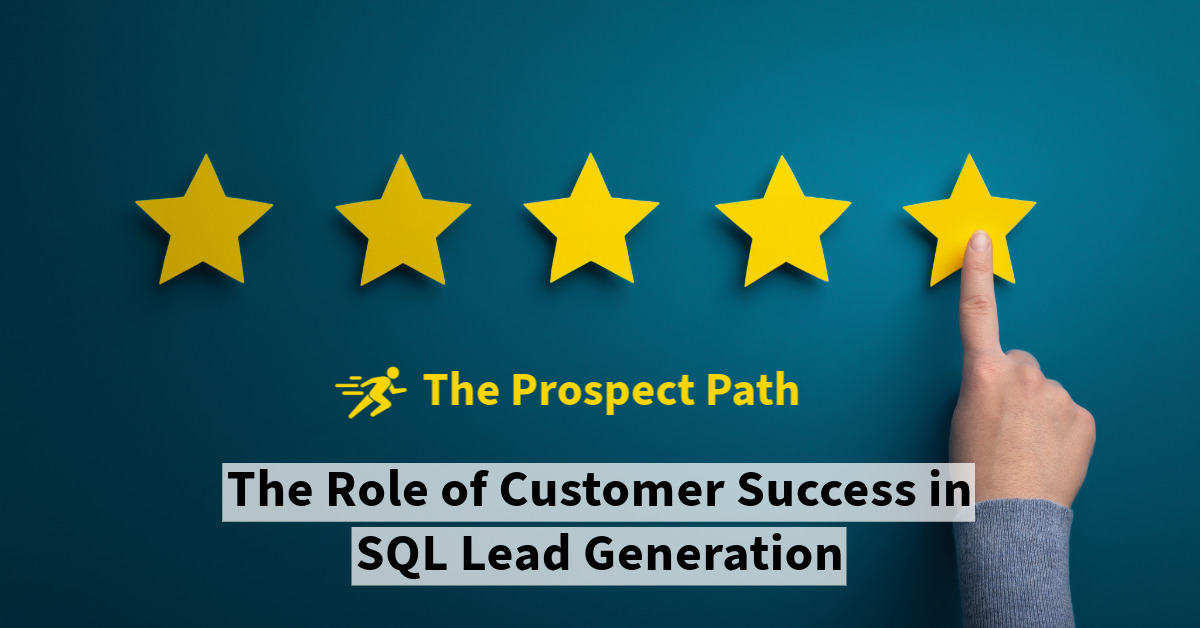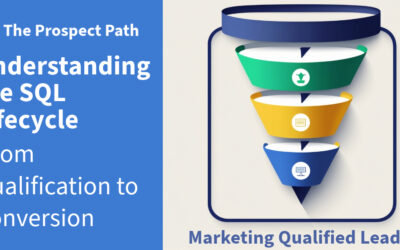In the ever-evolving landscape of B2B sales and marketing, the role of customer success has become increasingly vital, especially in the realm of SQL (Sales Qualified Lead) generation. Many companies focus heavily on acquiring leads but often overlook the importance of nurturing these leads through effective customer success strategies. In this blog post, we will explore how customer success can significantly enhance SQL lead generation, ultimately driving more revenue for businesses.
Understanding SQL and Its Importance
Before diving into the relationship between customer success and SQL lead generation, it’s essential to understand what SQL means. A Sales Qualified Lead is a prospect that has been vetted and deemed ready for the sales team to engage with. This qualification typically involves assessing whether the lead meets specific criteria such as budget, authority, need, and timeline (often referred to as BANT). SQLs are crucial because they represent potential customers who are more likely to convert into paying clients, making them a focal point for sales strategies.
The Intersection of Customer Success and SQL Generation
Customer success plays a pivotal role in nurturing leads through their journey from initial interest to becoming a qualified sales opportunity. Here’s how:
1. Building Trust and Relationships
Customer success teams are primarily focused on ensuring that existing customers achieve their desired outcomes while using a product or service. This focus on client satisfaction fosters trust and builds strong relationships. When potential leads see that your company prioritizes customer success, they are more likely to engage with your brand. A positive reputation can lead to referrals and recommendations, which are invaluable for generating new SQLs.
2. Leveraging Customer Feedback
Customer success teams are in a unique position to gather feedback from users about their experiences with your product or service. This feedback can be instrumental in refining marketing messages and identifying pain points that your solution addresses. By understanding what resonates with current customers, you can tailor your outreach efforts to attract similar prospects who may have similar needs.
3. Identifying Upsell and Cross-Sell Opportunities
A robust customer success strategy not only focuses on retaining customers but also on identifying opportunities for upselling or cross-selling additional products or services. When existing customers see value in what you offer, they become advocates for your brand. These advocates can help generate SQLs by sharing their positive experiences with others in their network or industry.
4. Data-Driven Insights
Customer success teams often have access to valuable data regarding customer behavior and engagement levels. Analyzing this data can provide insights into which types of leads are most likely to convert into SQLs. For instance, if certain features or services consistently lead to higher satisfaction rates among users, marketing teams can focus their efforts on promoting these aspects to potential leads.
5. Nurturing Leads Through Education
Customer success is also about educating users on how to maximize the value of your product or service. By hosting webinars, creating informative content, or providing personalized training sessions, customer success teams can nurture leads by demonstrating the value of your offerings. This educational approach helps prospects understand how your solution can solve their specific challenges, thereby increasing the likelihood of conversion.
6. Enhancing Communication Between Teams
Effective communication between sales, marketing, and customer success teams is crucial for generating SQLs. By sharing insights and updates about customer interactions and feedback, these teams can align their strategies more effectively. For example, if the customer success team identifies a common question or concern among users, marketing can address this in their campaigns to better resonate with potential leads.
7. Creating a Feedback Loop
Establishing a feedback loop between customer success and sales can significantly improve lead generation efforts. When sales teams understand the common objections or concerns raised by customers during onboarding or support interactions, they can refine their pitches accordingly. This collaboration ensures that both teams are working towards common goals: generating quality leads and converting them into loyal customers.
About The Prospect Path
At The Prospect Path, we understand the intricate relationship between customer success and lead generation. As a marketing company specializing in B2B lead generation services, we leverage our expertise to help sales and marketing professionals enhance their SQL lead generation efforts. Our focus is on creating tailored strategies that not only attract high-quality leads but also nurture them through effective customer engagement practices.
Conclusion
In conclusion, integrating customer success into your SQL lead generation strategy is not just beneficial; it’s essential for sustainable growth in today’s competitive market. By building trust, leveraging feedback, identifying opportunities for upselling, analyzing data-driven insights, nurturing leads through education, enhancing inter-team communication, and creating a feedback loop, businesses can significantly improve their chances of converting leads into loyal customers.
Are you ready to elevate your lead generation strategy? Contact The Prospect Path today to discover how our B2B lead generation services can help you generate more qualified leads and drive business growth! Let’s work together to unlock your company’s full potential. Contact us to get started!





0 Comments